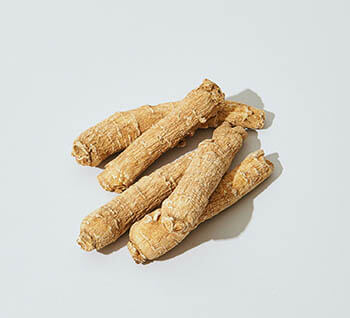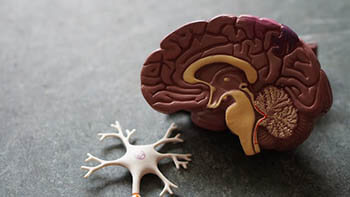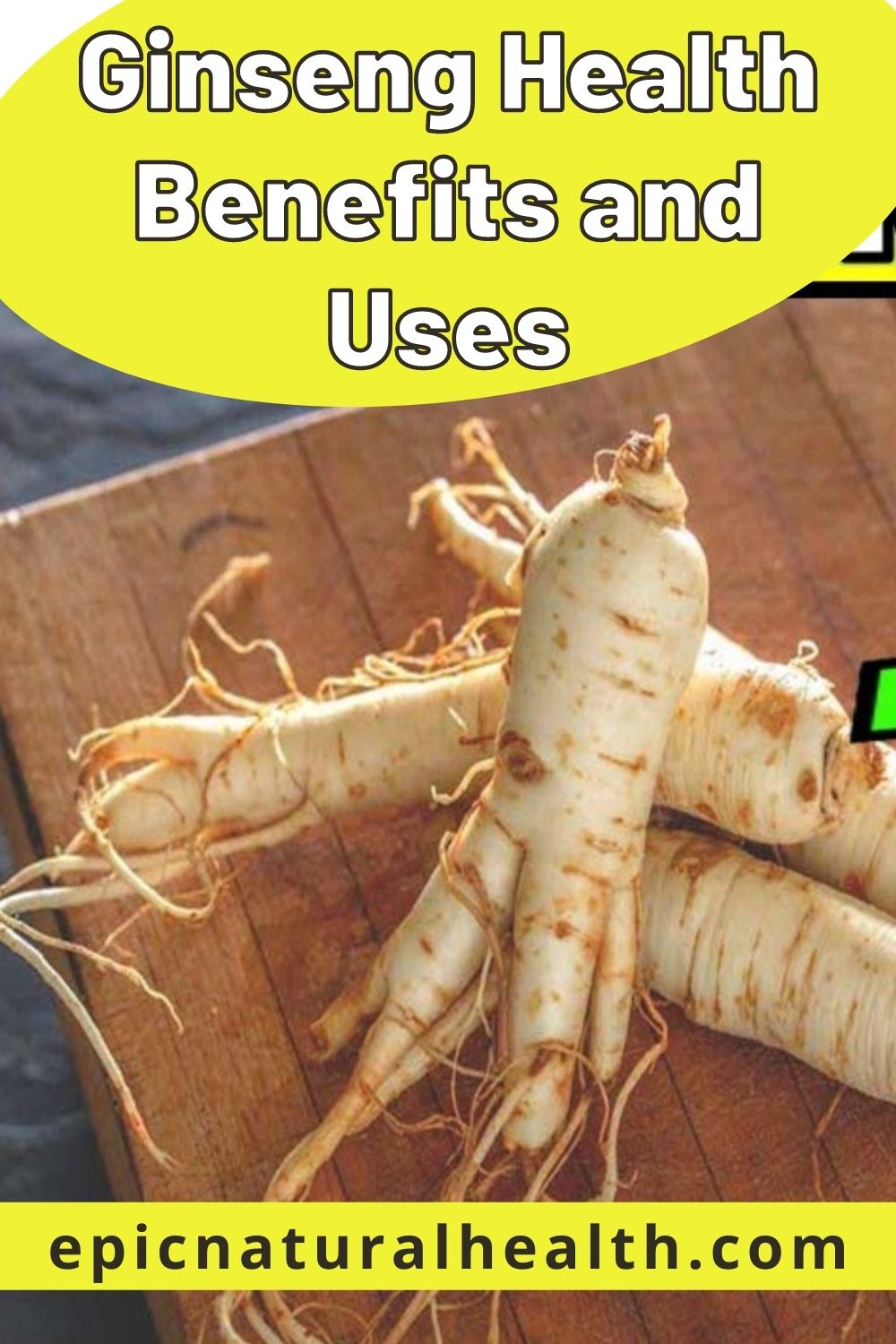You may have seen Ginseng in the supplement aisle of your local supermarket, or perhaps the root in a specialty greengrocer.
If you're unfamiliar with Ginseng and the wealth of health advantages it provides, look no further. Here, we'll be covering the health benefits of Ginseng, how to incorporate it into your diet, and how much to take.
What Is Ginseng?

Ginseng has been commonly used in traditional Chinese medicine as a tonic herb for centuries. Ginseng is a slow-growing root plant with forked-shaped roots, long stalks, and green, oval-shaped leaves.
Ginseng is classified in three ways depending on the growing time: fresh ginseng (harvested before 4 years), white ginseng (harvested between 4 - 6 years), or red ginseng (harvested after 6 six years).
There are a lot of different types of ginseng, but the most commonly known types are American ginseng (Panax quinquefolius) and Asian or Korean ginseng (Panax ginseng). Studies suggest that American ginseng serves as a relaxant while Asian/Korean ginseng invigorates.
Two significant compounds found in Ginseng are ginsenosides and gintonin. These compounds work together (much like yin and yang) to offer health benefits to the body.
11 Health Benefits of Ginseng
Here are 11 common health benefits of ginseng.
1. Antioxidant & Anti-inflammatory Effects
While there isn't much scientific evidence available, some studies show that Ginseng can reduce inflammation and increase antioxidant capacity in cells. Medical research suggests that the ginsenosides found in Ginseng target immune system pathways that fight inflammation.
2. Could Enhance Brain Function

Ginseng may enhance cognitive functions such as behavior, memory, and mood. More research is needed, but studies suggest that Ginseng could protect the brain against harmful free radicals, improve mental health and mood, promote calmness, reduce mental fatigue, and have a positive effect on the brain function of Alzheimer's patients.
Because Ginseng acts as a natural stimulant, it has a positive impact on attention and focus. Thanks to its natural stimulating properties, Ginseng is being tested as a potential treatment for ADHD.
3. May Improve Erectile Dysfunction
Ginseng could improve erectile dysfunction in men. Research indicates that Ginseng potentially protects the blood vessels and tissues in the penis against oxidative stress, restoring normal function. Ginseng could also increase the production of nitric oxide to encourage muscle relaxation in the penis and enhance blood flow in the penile muscles.
Not only does Ginseng potentially improve erectile dysfunction, but it just may be a natural libido lifter, and might boost sex drive in both men and women.
Ginseng contains compounds that are similar in function to cortisone. They stimulate the adrenal cortex and encourage the production of sex hormones. Ginseng appears to be particularly effective in improving the sex drives of premenopausal women and men suffering from impotency.
4. Potential Immune Boosting Benefits

Ginseng has been touted as an immune booster. Many believe that Ginseng can boost immune function against infections such as the flu. However, more research on flu patients is needed.
Several studies have investigated the effect Ginseng has on cancer patients going through chemotherapy treatment or surgery. Results indicate that these patients showed significantly improved immune functions.
One study even suggested that people who take Ginseng could increase the chances of living disease-free for five years after surgery by up to 35%.
5. Possible Benefits Against Cancer
Red Ginseng, in particular, may be beneficial in reducing the risk of certain cancers, according to some research.
Ginseng contains ginsenosides that reduce inflammation, supply antioxidant protection, and maintain healthy cells. People who regularly take Ginseng may have a 16% lower risk of developing certain cancers, liver cancer, lung cancer, and stomach cancer.
Ginseng is also said to reduce the side effects of patients going through cancer treatment such as chemotherapy.
6. May Fight Fatigue and Improve Stamina

Ginseng may help improve energy levels, fight fatigue, and enhance physical activity. Panax Ginseng (Asian Ginseng), in particular, is claimed to reduce mental and physical fatigue by reducing oxidative stress and boosting energy production in cells.
7. Could Lower Blood Sugar

Evidence suggests that Ginseng may assist in the treatment of diabetes by helping control blood glucose levels, improve pancreatic cell function, and increase insulin production.
Ginseng is a powerful antioxidant that reduces the number of free radicals in the cells of diabetics. Studies have shown that when diabetics take Ginseng at the same time as consuming sugar, blood sugar levels didn't spike as much.
While there is strong evidence to suggest that Ginseng is an effective tool in lowering blood sugar and managing diabetes, it's important to note that Ginseng might interact with diabetes medications.
Always consult a medical professional before introducing new herbs or supplements into your diet if you are already taking other medications. More on this later.
8. Could Lower Blood Pressure
Ginseng has a positive effect on regulating blood pressure. When taken in high doses, Ginseng promotes the production of nitric oxide, which causes the arteries to widen and improves blood flow without increasing blood pressure.
9. May Reduce Cholesterol
Research has indicated that administering 6 grams of Ginseng daily for 8 weeks reduced bad cholesterol (LDL cholesterol) and increased good cholesterol (HDL cholesterol), which protects the heart.
10. Potential Anti-Aging Effects
Packed with anti-aging properties, it's no wonder Ginseng is such a popular herb. Ginseng reduces oxidative stress, promoting skin rejuvenation and protecting collagen to keep wrinkles at bay.
11. May Promote Hair Growth & Reduce Hair Loss

Ginseng is believed to promote hair growth and decrease hair loss. Ginseng is a powerful stimulant that can stimulate the scalp and encourage hair growth.
More specifically, Korean red Ginseng is said to increase the numbers of dermal Because cells in the scalp by preventing cell death. Since Ginseng is known to reduce stress, this can also help slow down hair loss.

American Ginseng vs. Panax Ginseng
American Ginseng is commonly taken orally to strengthen the immune system or reduce stress, or act as a stimulant.
As well as fighting infections like colds and flu, American Ginseng is said to:
- Improve the symptoms of other infections such as dysentery, HIV/AIDS, and Pseudomonas infections (typically found in people suffering from cystic fibrosis)
- Aid digestion, increase appetite and reduce vomiting and inflammation of the stomach and colon
- Fight cancer-related fatigue
- Reduce high blood pressure
- Ease nerve pain
- Prevent memory loss and improve mental performance
- Reduce the signs of aging
- Improve the symptoms of conditions such insomnia, fibromyalgia, breast cancer, attention deficit-hyperactivity disorder (ADHD), and "hardening of the arteries" (atherosclerosis)
Panax Ginseng (Asian Ginseng), is commonly used in the following cases:
- As an adaptogen (increase stamina, reduce fatigue)
- Ease anxiety and depression
- Improve physical/athletic performance
- Enhance cognitive function
- Increase male fertility and treat erectile dysfunction
- Reduce headaches
- Treat menopausal symptoms eg. hot flashes
Note: While many people believe that Ginseng is effective for serious health conditions such as breast cancer, bronchitis, and congestive heart failure, there is insufficient reliable evidence to determine just how effective it is in these cases.
How to Add Ginseng to Your Diet
You can consume Ginseng root in several ways. Here are a few ideas:

- Eat it raw (wash and peel the root first)
- Lightly steam the root to soften it before eating
- Make a tea by adding hot water to freshly sliced Ginseng root and leave it to brew for a few minutes (or add Ginseng powder to a teabag and leave to steep for a couple of minutes)
- Add Ginseng root to soups, stir-fries, and smoothies
- Take a supplement such as a capsule, powder, pill, extract, or oil
How Much Ginseng Should You Take?
The amount of Ginseng you take depends on several factors, including the condition you are hoping to improve with the Ginseng.
Generally speaking, 1 - 2 grams of raw Ginseng root per day or 200 - 400 mg of Ginseng extract is recommended. If you're not sure how much to take, start with a lower dose and increase as needed.
When choosing Ginseng extract, opt for one with 2 - 3% total ginsenosides. To enjoy the full benefits of Ginseng (and increase absorption), the herb should be consumed before meals.
Evidence suggests that using Ginseng for a prolonged period of time can make it less effective. Therefore, it's recommended to take Ginseng in cycles of 2 or 3 weeks, taking a one or two-week break between cycles.
Dosage and Potential Side Effects
Ginseng is a safe herb and should not cause any serious side effects. Having said that, people taking certain medications should be aware of possible drug interactions. For example, people taking diabetes medications are advised to monitor blood sugar levels carefully when they consume Ginseng to make sure their blood sugar doesn't drop too dramatically.
Ginseng can also interfere with anticoagulant drugs (medicines to prevent blood clots by thinning the blood), so it's important to speak to your doctor before adding any supplements to your diet. Ginseng is not recommended for children or those who are pregnant or breastfeeding.
Ginseng doesn't usually cause any side effects when taken in small doses, however, taking too much can cause some symptoms. Ginseng is an adaptogen, taking too much of any adaptogen can cause the following:

- Digestive problems
- Headaches
- Insomnia
- High blood pressure
- Dizziness
- Heart palpitations
If you experience any of these symptoms, stop taking Ginseng until you speak to your doctor. Generally speaking, people suffering from high blood pressure or heart conditions should steer clear of Ginseng.
Final Thoughts
Ginseng has been used for centuries in Chinese medicine as a tonic herb. Commonly lauded for having strong anti-inflammatory and antioxidant properties, Ginseng can provide a number of health benefits.
Ginseng is said to regulate blood sugar levels, boost the immune system, enhance brain functions, and invigorate the body to fight fatigue. The two most common types of Ginseng are American Ginseng (Panax quinquefolius) and Asian ginseng (Panax ginseng).
Ginseng is an easy herb to add to your diet, it can be eaten raw, lightly steamed, made into a tea, added to soups and stir-fries, and taken in supplement form. To feel the full effect of Ginseng, it is best taken in 2 - 3 week cycles with a break in between.

